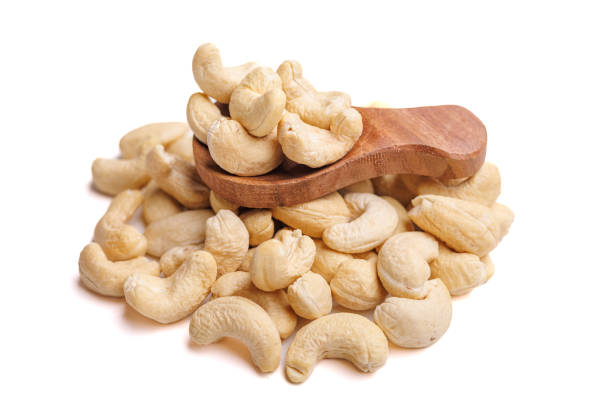Cashew Nutrition Facts Per 100g : The Superfood Secret Everyone’s Talking About!
-
Introduction
Purpose: Set the stage by highlighting the growing buzz around cashews as a nutrient-rich superfood.
Details:

- Open with a hook: “Have you ever wondered why cashews are popping up in everything from smoothies to energy bars?”
- Mention the keyword “Cashew Nutrition Facts Per 100g” as the foundation for understanding why cashews are being labeled a superfood.
- Tease the nutritional value and health benefits the reader will learn.
-
Cashew Nutrition Facts Per 100g – At a Glance
Purpose: Provide the reader with clear, factual data on cashew nutrition.
Details: “Cashew Nutrition Facts Per 100g”

-
- Calories: ~553 kcal
- Protein: ~18g
- Total Fat: ~44g (including healthy monounsaturated fats)
- Carbohydrates: ~30g (with ~3g fiber and ~6g sugar)
- Vitamins: E, K, B6
- Minerals: Magnesium (~292mg), Iron (~6.7mg), Zinc, Copper, Phosphorus
- Explain what each nutrient does in simple terms.
-
Health Benefits Backed by These Nutrients
Purpose: Connect the numbers to real-world health advantages.
Details:
- Explain how the “Cashew Nutrition Facts Per 100g” translate into:
- Heart health: thanks to unsaturated fats and magnesium.
- Bone strength: due to phosphorus and copper.
- Brain function: supported by healthy fats and B-vitamins.
- Energy levels: fueled by protein, carbs, and iron.
- Immune boost: due to zinc and antioxidants.
-
Cashews for Special Diets
Purpose: Show versatility of cashews for various dietary needs.
Details:
- “When reviewing Cashew Nutrition Facts Per 100g, many health-conscious eaters wonder if they fit into specific diet plans.”
- Keto-friendly? – Yes, but watch portions due to carbs.
- Vegan-friendly? – Absolutely, as a plant-based protein source.
- Gluten-free? – Naturally gluten-free and a great alternative in GF baking and cooking.
- Mention use in vegan cheese, cashew milk, etc.
-
Comparing Cashews to Other Nuts
Purpose: Show where cashews stand out.
Details:
- Head-to-head comparison of Cashew Nutrition Facts Per 100g with almonds, peanuts, and walnuts.
- Highlight:
- Higher magnesium than almonds
- Less fat than walnuts
- More iron than peanuts
- Visual comparison chart can enhance this section.

-
Are There Any Downsides?
Purpose: Give a balanced view by sharing potential concerns.
Details:
- “While Cashew Nutrition Facts Per 100g show impressive health benefits, they also reveal a high calorie count.”
- Discuss:
- Calorie-dense nature—eating in moderation is key.
- Allergy risks for those with tree nut allergies.
- Raw vs. roasted – raw may contain urushiol; roasting helps make them safer and tastier.
-
Best Ways to Add 100g of Cashews to Your Diet
Purpose: Offer practical meal ideas and usage suggestions.
Details:
- Introduce this section with: “Now that you understand the Cashew Nutrition Facts Per 100g, here’s how you can enjoy them daily.”
- Suggest:
- Smoothies
- Homemade cashew butter
- Stir-fries and salads
- Vegan cheese or cream sauces
- Note that soaking them enhances digestibility and makes them creamier in recipes.
-
Conclusion
Purpose: Wrap up the article with a recap and encouragement to take action.
Details:
- Cashew Nutrition Facts Per 100g
- Reiterate their status as a superfood packed with healthy fats, protein, and essential minerals.
- Encourage readers to try incorporating cashews into their diets for better health, with mindful portions.
The Ultimate Calisthenics Workout Guide : Transform Your Body Using Just Your Body 1
